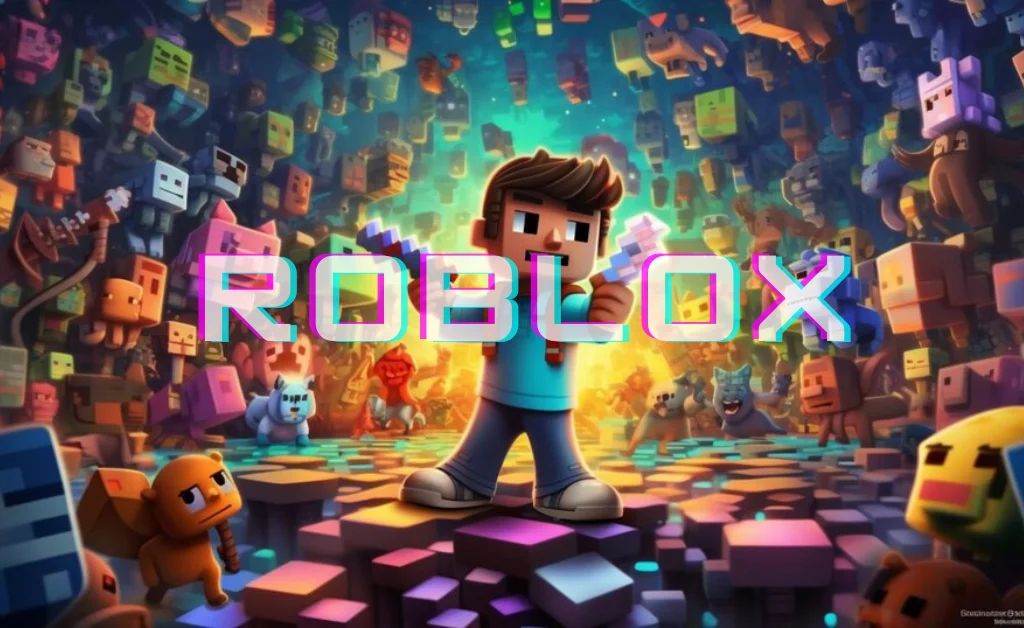Exploring the Whimsy of “Silly Wankok”: A Playful Dive into Language, Humor, and Creativity
Silly Wankok In a world where communication takes many shapes, one thing remains true: laughter and humor has a remarkably important social relation and pleasure provoking function. However, quickly moving past this vast assortment of nonsensical and comical proverbs and adages/ ‘silly wankok’ can be categorized as being gratuitously humorous. Whether new to your ears or not there is something childish about it that urges the soul to play and to be happy. However, what does “silly wankok” mean, and how it has the rich potential to appeal to the majority of users? Well then, this article will be an examination of what exactly “silly wankok” is, its origins and its cultural context; and then quantify how it can easily cross over to the realm of the pleasant to say at least as much.
What Does “Silly Wankok” Mean?
At first glance, most people may think that “silly wankok” is a name invented for trifle—probably an expression that people can hear during a battle of words. In fact there is no general meaning of and no general explanation of this specific in the dictionary; but the meaning of this phrase is defined by the context of its usage all the same. Of course, to emphasize some or another aspect, one can use “silly wankok” in all sorts of modifications: to sting, to amuse, to provoke and so on. This he says, can be said in so many different ways depending on the kind of relationship, the kind of tone the case between the two people.
The second one can be considered the probable colloquial informal translation to English of the term and the first one may mean , interpreting in the context of a nonsensical video spit take, or, in other words a tame insult ‘silly wankok’. It is acceptable to joke with an individual and loved one when they do something stupid or clumsy, or maybe made a stupid error which can be referred to as ‘silly wankok,’ when it is understood that no aggression will be acted out. For example if a friend spills drink on the table during a party instead of embarrassing the friend one can say “You silly wankok!” Then there will be an opportunity to ridicule situation when getting embarrassed is impossible.
The second reason for which “silly wankok” may be thought to be suitable for a translation of the word is silliness; it may mean frustrated wankok. In other words, when a person bitching and moaning and finds simple aggravation annoying, for instance, a difficult gadget or an irritating situation, can be joked while responding using this phrase. It is to a greater or lesser extent still an incompliant observation which effectively makes something or someone rather childish.
Finally, “silly wankok” can also used loving between two individuals and those who joined in some funny acts before. Thus, if you find that some of your friends are close enough to afford this pet name for a joke, then swearing at somebody, calling him ‘a silly wankok’, means teasing the guy just because you want to pull his leg about a certain flaw or some childish nonsense.
Nevertheless, if one attempts at generalizing “silly wankok” as a term, it might be devoid of any or a specific acceptable meaning ; however, the same is sufficiently liberal to allow humor into situational practices.
Also Read: https://creatify.click/vamos-bet
The Linguistic Playfulness of “Silly Wankok”
Language is a great concept that is full of great potential for freedom of creation. The creation of phrase like “silly wankok” is possible to explain coming to realizing language as litteral, but creative at the same time. In its essence, this term compels us to consider when words and sounds can meaningfully stretch and what spaces are allowed to be liminal and silly.
This comic vignette of “silly wankok” demonstrates how literary recreation contribute to the make of speech the more interesting and easy to learn. The word “wankok,” although is actually meaningless, phonetically rolls off the tongue easily, and is pleasant to hear. The relation in which these sounds are placed, thus, helps make one focus on the entertainment part and the nonsense of the word. It is a somewhat bullocks and barrow term which makes it funny and a great reminder that language is anything that can be made fun of.
This is not only the case with ‘silly wankok.’ As for the subjects touched upon in the introduction and generally widespread in today’s world use of all kinds of combinations of sounds, seemingly so philosophically grounded and jolly, whose association does not produce a comprehensible idea, yet provides pleasure for the listener and develops the corresponding emotions, it is possible to note that an analogous use is English, as well as a great many other languages. Using terms such as this in the creative and infinite sphere of language formation is pure imagination – entertainment in the context of language formation.
The Power of Alliteration
That is why “silly wankok” can be both said and heard with pleasure because it alliterates. Alliteration is the phenomena where successive words in a particular phrase or line of poetry start with similar sounds. Here the words used are silly, and wankok the harmony between the alphabet ‘s’ and the alphabet ‘ w’ are blended for the Chapmans music. It is a very common general stylistic device as the repetition of those sounds really does provide that stream with a rhythm which is interesting to people.
The sing of such rhythm is very useful in pointing the sill wankok differently from many other common songs. Not the content, but the letter and voice behind it With that being said The word “silly” kind of makes the word seem playful, and comical and the addition ‘wankok’ is somewhat absurd, and has a hint of the funny into it. These two sounds when combined form a phrase that is not just fun to say and fun to hear but proves easy to remember and with high likelihood of being repeated in one’s mind once the phrase is used.
The Role of Nonsense Words in Language
Pseudocontacts proved to be important in language functionality. Although it may be difficult to pin down a definition, or use of these words may violate standard grammar, they still enable the speakers to discuss feelings, responses, and ideas that could otherwise be expressed only vaguely and inadequately. Sometimes people use non-sense words in order to make jokes, shock or bring fairy-tale style feel into real life.
Think about when children play, and they come up with funny words, which may not make any sense. These are not delineated by a formal definition, and yet, these invented terms are very useful creating a spirit of originality, imagination and togetherness. Such terms of ‘wankok’ are examples of this sort of words. They aren’t actually defined in dictionaries, but rather act to convey such a vast variety of nuances, from jokes or impatience to affection, based solely on the situation.
Thus, “silly wankok” is rather in tune with senders’ sensibility of language games. It lets people speak without restraining by words and definitions, making people to laugh and have fun. In the same way as with any other phonetic word built without any actual meaning “wankok” is just a tool which lets speakers be creative and involve nonsense elements into their everyday conversations and thus, make it a little brighter.
Cultural Significance and Usage
Although ‘silly wankok’ does not have widespread cultural recognition and relativity the use of humor and playful language in communication is not. People of different cultures of the world have taken their own time to classify the use of humor in management of tension, in establishing other people and familiar tunes of life. The appearance of cartoonish or joking tones is quite the popular strategy as people come to create unity when laughing.
In some situations, that phrase could be an incarnation of certain pop culture phenomenon known in the specific region or among the specific circle of people, and created by them to be used. The language that a person and his associates employ reveals cultural norms, humor or other cultural phenomena in a given society. Unfortunately, not every rickshaw puller will get the pun but perhaps in a different population group, “silly wankok” can be a vehicle for bringing people together by laughing at the absurdity of it all.
The Role of Humor in Language
People cannot avoid laughing since it a natural part of human interaction. There is probably no person in the entire world over the age of 5, who does not use language humor to make life easier to bear and to de-escalate, and to have something to do in common with others. Elements like ‘silly wankok’ are supposed to create humor during communication and are used to express funny things and irritation and even love. Language is established as one form of an interaction tool and as a way of creating the feeling of happiness.
Humor in language also varies in terms of the generation and frequency. In future the young generation develops other phase and memes just to ensure that all the people around them lighten up. The two new media technologies that were identified by Waite and Sharp as being especially targeted by the advertisement were internet and more specifically web-based social networking platforms. An innocent looking phrase like ‘silly wankok’ can be applied in viral videos, memes, or whenever someone is discussing on the internet to help make people around the globe happy.
Internet Culture and Memes
As much as language development is an exciting phenomenon in the contemporary generation, the way it travels through the cybersphere is thrilling. Popular phrases and jokes can be popularized quite easily through memes or even extensively shared on the Internet for a feeble reason that is easier to understand. Silly wankok may not be a meme yet but given the right context and creativity the phrase might top up YouTube’s meme lists spot soon.
There is today a veritable creolization of language in the Internet, where numerous neologisms are coined. The meme goes viral itself, which indicates that language can change rather unconventionally and the mass intelligence of net users. “Silly wankok” may also easily belong to this realm bearing in mind that many people in the contemporary society thrive in exploring fresh trends that are used in an exercise of humor.
Also Read: https://lyrifii.com/lillienu/
How to Incorporate “Silly Wankok” into Your Vocabulary
If interested in incorporating “silly wankok” into your everyday speech, here’s how you can make the process much more fun. Of course, the way you use this phrase should be playful and humorous and do not try to make too much of it at any point.
First of all, one can smile and use “silly wankok” at friends or family members, for instance. It is a perfect tool to make any person positive, especially when someone is a little off balance or has made a stupid error. It can be used when, for instance, a person drops something or forgets something very important, and in the end, instead of angering or becoming serious with that person and telling them to pick up their things or focus before leaving, people might just laugh and jokingly tell that person; oh you silly wankok!
Second, it may be very hilarious to write “silly wankok” in the caption of the Instagram or any other social media related post. You can also add more humor to your content by using this phrase followed by a funny photo or a video. No matter you are sharing a story about a slip or a joke or an absurdity, ‘silly wankok’ is a perfect term to make the theatrical character of your social networking site profile.
Silly wankok can also be applied in your concocted story, joke, satire, or like other humorous products in a script. Due to the delectable sound of the phrase, alongside which there is no stable semantic association, it is best applied to descriptions that are based on the concept of absurdity and non-serious witticism. If there was a character of a person who constantly got into funny messes – “silly wankok” could be his/her tag line.
Last of all, “silly wankok” is suitable for people at least with whom you share intimate relationship, whether friends or lovers. Often when a person does something funny or odd, using the term to address them as a ‘wankok’ makes the conversation much lighter and reveals that the emotion that the speaker feels toward the person is love.
Conclusion
This term might not need a clear concept or a historical background, but then its appeal has largely to do with its absurdity, its funny pronunciation and the pleasure of using it. English is dynamic and people are very expressive with it and it is one of the reasons we find terms like ‘silly wankok’. Regardless of whether you find yourself using the phrase and calling someone a ‘silly wankok’ as an insult, a mere frustration or an affectionate endearment, there is nothing that brings light and humor to the word than the fact that wankok is a term that brings laughter.
It just occurred to me that when the world frowns at excesses and formality, it is reasonably okay to take light at the absurdity of terms such as ‘silly wankok’. Therefore, you should not hesitate to use some “silly wankok” during daily conversations and observe people smile or laugh due to the used word.
FAQs
1.Recall, what does the term ‘silly wankok’ mean?
“Silly wankok” is not a known term from the research conducted but when said it can be used to express humour or bother some. It is used joking how, one might shout it in anger; or two friends might address each other in this manner.
2.According to what measure am I free to use ‘silly wankok’ in my common stuffs?
Of course it has to be slang and the main intention which is not to be taken seriously or used in a setting where ones company is taken seriously.
3.The term used by David hiding himself behind the Archangel Raphael ‘sill wankok ‘ orginates from The term ‘silly-wank-a-koff’ was originally made up by Freddy Krueger.
Besides, the etymology of the phrase sometimes referred to as ‘silly wankok’ is still unknown to a degree however , it does seem to be one of a long list of whimsical and charming phrases many used with a strong emphasis placed upon the sounding.
4.Should “silly wankok” be considered as part of the Internet memes or social networks?
While it has not yet made its way to the level of meme, it is quite simple to put into the humorous posts on social media or any other content posted on the Internet.
5.Can “silly wankok” be written?
Absolutely! It’s actually utterly impossible to use ‘silly wankok’ when the writer is writing a story that is full of fun, a short story or dialogues which are supposed to contain humor.



